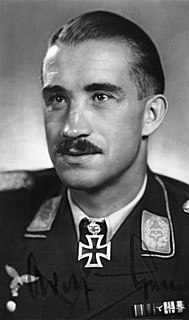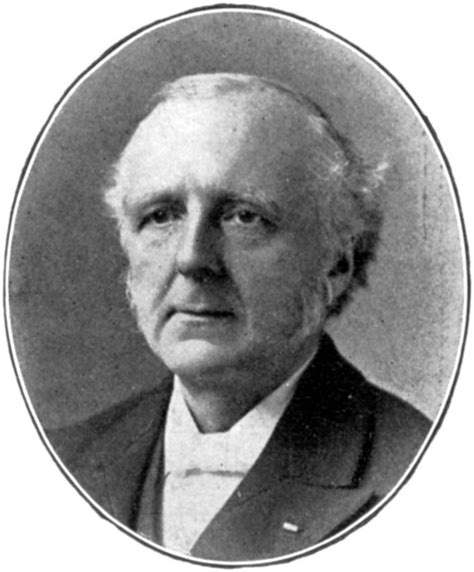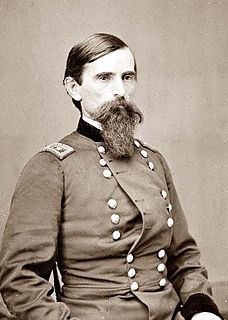A Quote by William Shakespeare
It is the cowish terror of his spirit that dares not undertake; he'll not feel wrongs which tie him to an answer.
Related Quotes
Their element is to attack, to track, to hunt, and to destroy the enemy. Only in this way can the eager and skillful fighter pilot display his ability. Tie him to a narrow and confined task, rob him of his initiative, and you take away from him the best and most valuable qualities he posses: aggressive spirit, joy of action, and the passion of the hunter.
The spirit of God, like the sun, always gives all its light at once. The spirit of man resembles the pale moon, which has its phases, its absences and its returns, its lucidity and its spots, its fullness and its disappearance, which borrows all its light from the rays of the sun, and which still dares to intercept them on occasion.
Man is more than his environment. It is from the innate quality of the Spirit in him, his inner storehouse, that he draws those ideas, his intuitions, which unify his perceptions of the external world instantaneously with a value which is qualitative and not quantitative, and which he embodies in the works of his culture - those achievements which belong not only to one particular time but to all times, and mark the path of his upward progress.
I know no study which is so unutterably saddening as that of the evolution of humanity, as it is set forth in the annals of history. Out of the darkness of prehistoric ages man emerges with the marks of his lowly origin strong upon him. He is a brute, only more intelligent than the other brutes, a blind prey to impulses, which as often as not led him to destruction; a victim to endless illusions, which make his mental existence a terror and a burden, and fill his physical life with barren toil and battle.
The last decisive energy of a rational courage which confides in the Supreme Power is very sublime. It makes a man who intrepidly dares every thing that can oppose or attack him within the sphere of mortality-who will press toward his object while death is impending over him-who would retain his purpose unshaken amidst the ruins of the world.
Some souls think that the Holy Spirit is very far away, far, far, up above. Actually he is, we might say, the divine Person who is most closely present to the creature. He accompanies him everywhere. He penetrates him with himself. He calls him, he protects him. He makes of him his living temple. He defends him. He helps him. He guards him from all his enemies. He is closer to him than his own soul. All the good a soul accomplishes, it carries out under his inspiration, in his light, by his grace and his help.
The mockery made him feel an outsider; and feeling an outsider he behaved like one, which increased the prejudice against him and intensified the contempt and hostility aroused by his physical defects. Which in turn increased his sense of being alien and alone. A chronic fear of being slighted made him avoid his equals, made him stand, where his inferiors were concerned, self-consciously on his dignity.
The most spectacular thing about Johnny [von Neumann] was not his power as a mathematician, which was great, or his insight and his clarity, but his rapidity; he was very, very fast. And like the modern computer, which no longer bothers to retrieve the logarithm of 11 from its memory (but, instead, computes the logarithm of 11 each time it is needed), Johnny didn't bother to remember things. He computed them. You asked him a question, and if he didn't know the answer, he thought for three seconds and would produce and answer.







































